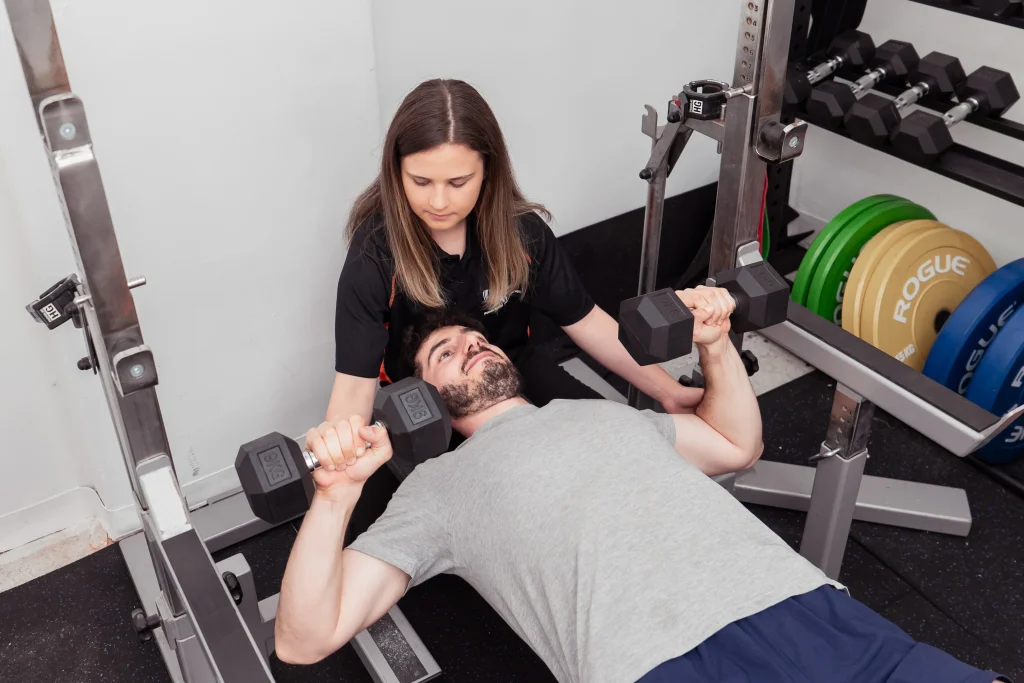
Have you ever felt sore a day or two after a tough workout in the gym or trying a new activity? This is likely DOMS—Delayed Onset Muscle Soreness. It’s a normal part of how your body adapts to exercise, but it can still leave you feeling stiff, tight, or even questioning if you’ve injured yourself.
How can you tell if your soreness is something to worry about—or just your muscles adjusting? That’s where a physiotherapist can help by assessing your symptoms, guiding your recovery, and providing targeted treatments like dry needling or remedial massage to help ease the discomfort.
What Is DOMS?
DOMS typically appears 12–48 hours after exercise, especially after activities your body isn’t used to, or workouts that involve eccentric muscle loading—such as squatting, running downhill, or lowering weights slowly.
You might experience:
- General muscle soreness or tenderness
- Stiffness when moving or stretching
- Mild swelling or tightness in the muscles
- Temporary muscle weakness
These symptoms usually peak around day two and resolve within 3–5 days. While DOMS is uncomfortable, it’s not an injury. It’s simply part of your muscles adapting and becoming stronger.

What Causes DOMS?
DOMS is most commonly triggered by:
- Starting a new exercise routine
- Increasing exercise intensity or volume too quickly
- Returning to exercise after a break
- Doing more eccentric movements (e.g. lowering in a squat)
- It can happen to anyone—whether you’re a beginner or an experienced athlete.
How Can Physiotherapy Help?
Even though DOMS isn’t dangerous, you may experience some muscle discomfort and limitation of body movements that affect your ability to stay active. Physiotherapy can help reduce the discomfort and support a faster recovery.

A physiotherapist can:
- Assess whether it’s DOMS or something else (like a muscle strain or joint issue)
- Loosen tight muscles using manual therapy or soft tissue release
- Use dry needling to relieve deep muscle tension and improve circulation
- Provide remedial massage to reduce soreness and help relax overworked muscles
- Guide you through light mobility and stretching exercises to restore range
- Advise on activity modification so you can keep moving safely

Tips to Recover Smarter
Total rest isn’t always the best solution. Instead, your physio may recommend:
- Gentle movement like walking, swimming, or light cycling
- Active recovery (low-impact sessions that get the blood flowing)
- Hydration, protein-rich meals, and good sleep for muscle repair
- Stretching and mobility work to ease tension
Still Feeling Sore?
If your soreness isn’t improving after a few days, or you’re unsure whether it’s DOMS or an injury, it’s a good idea to get checked. A quick physio assessment can give you peace of mind and get you back on track.
Need help recovering from sore muscles?
Book a dry needling or remedial massage appointment with our physio team today. We’ll help ease the tension, reduce your discomfort, and support your recovery—so you can move better, faster.

